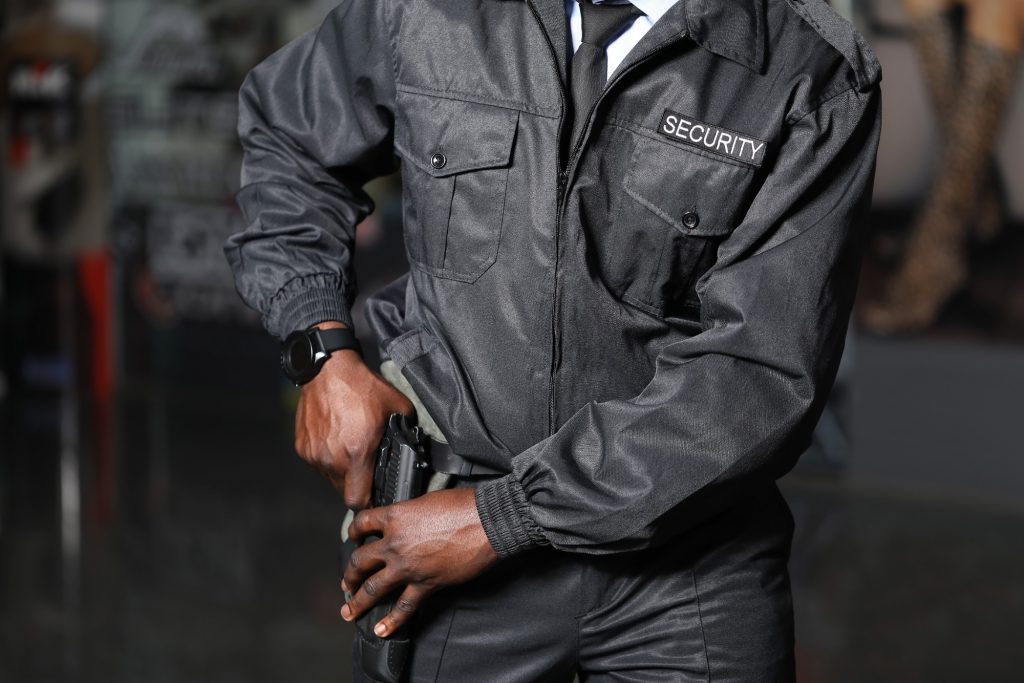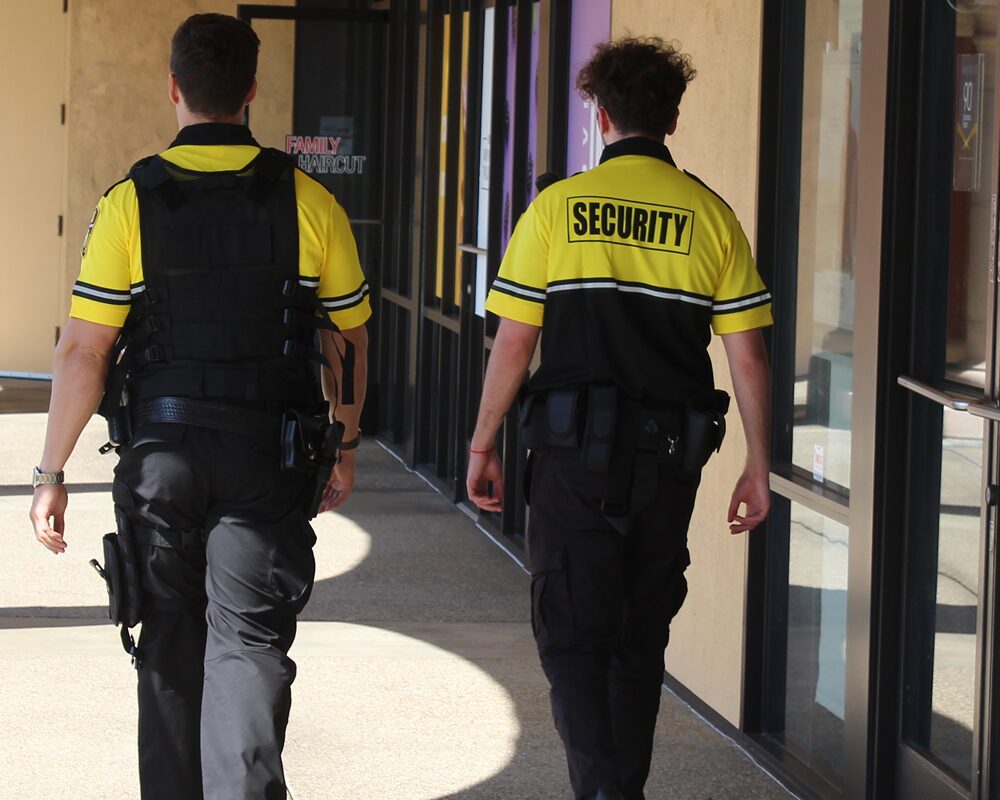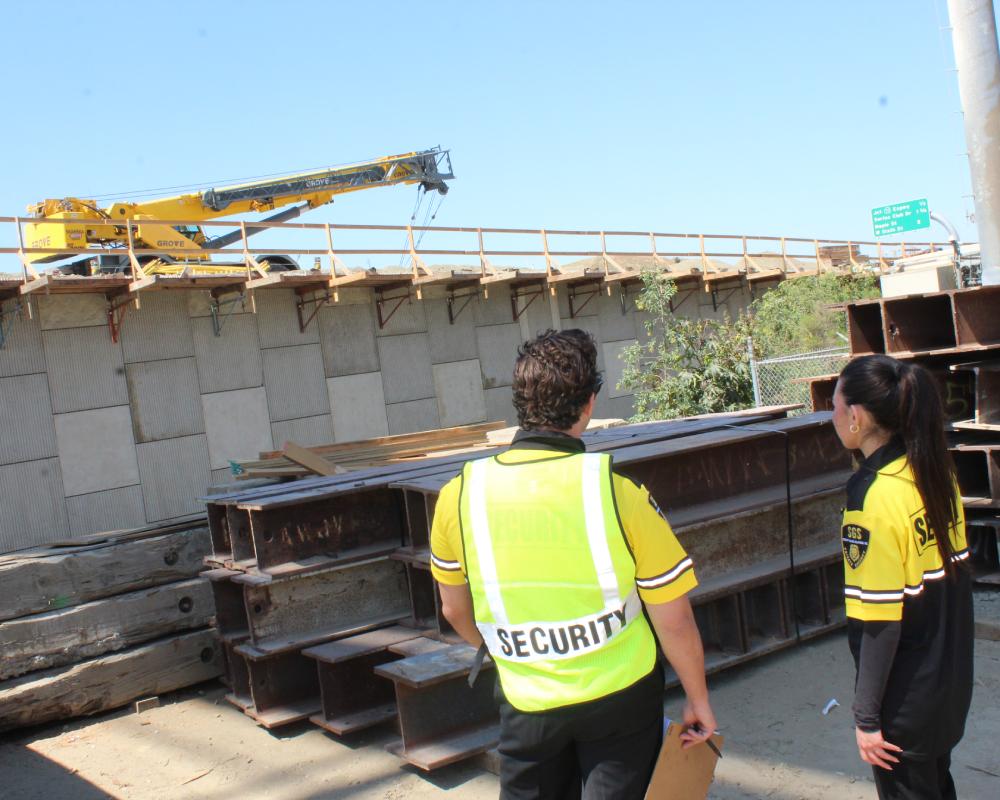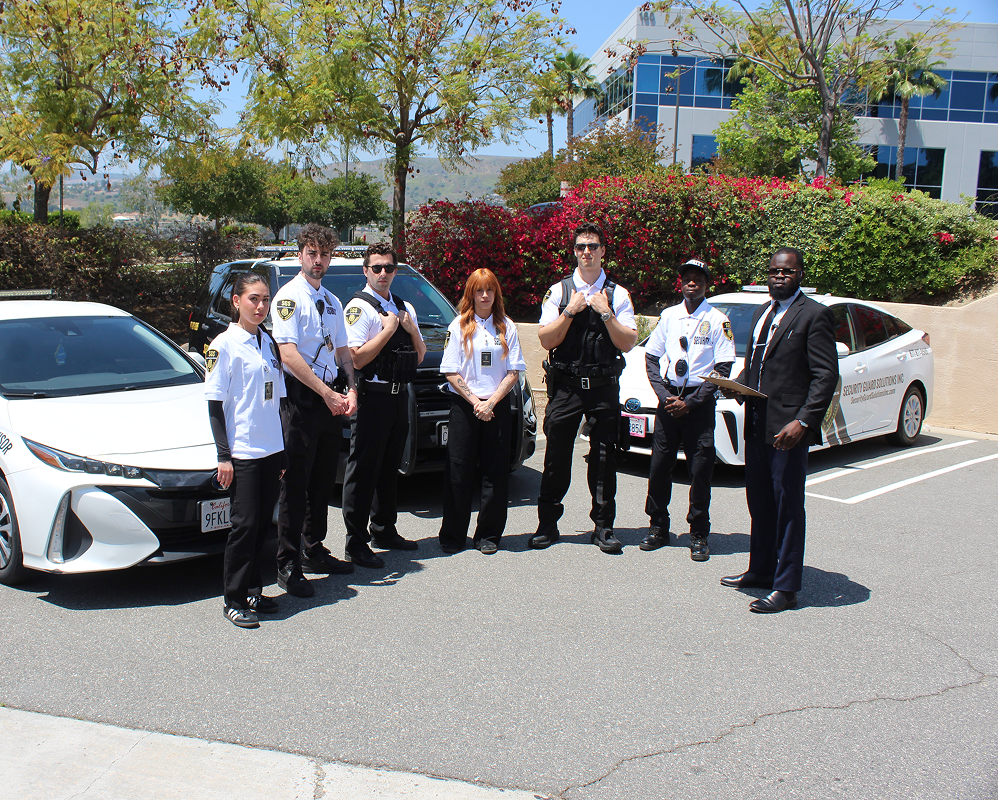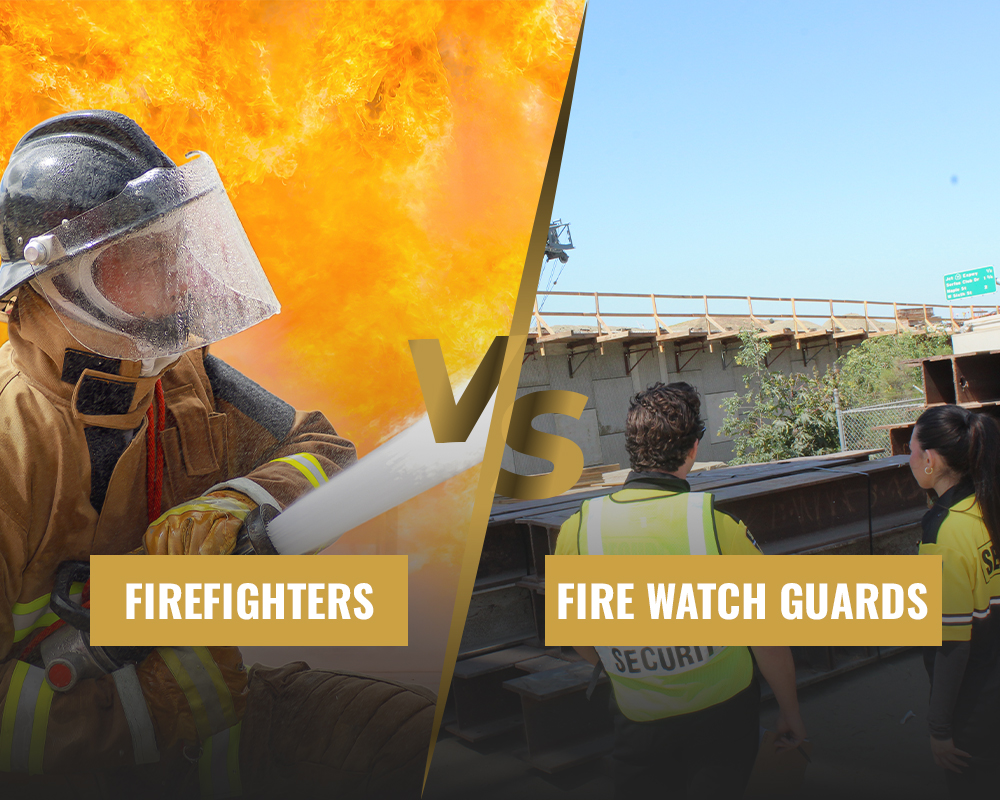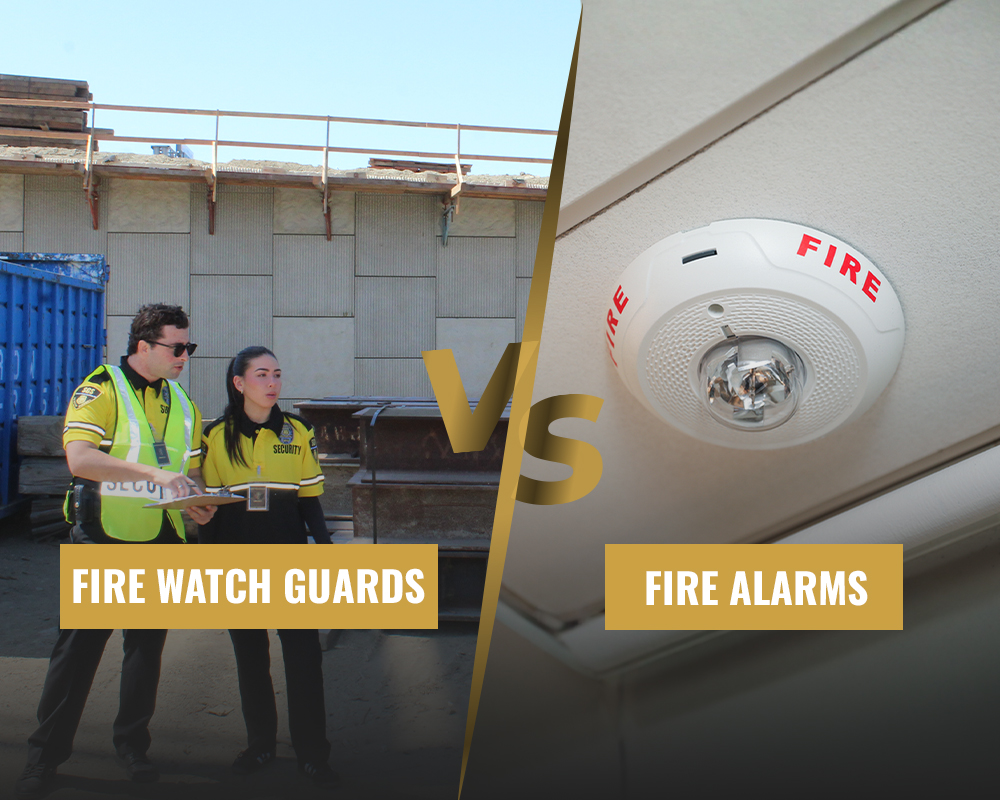Securing a property in Dallas often raises an important question: should you invest in armed security or is an unarmed presence sufficient? The answer isn’t always obvious, but it matters.
Dallas experiences a violent crime rate higher than three-quarters of U.S. cities, which means businesses and property owners face real risks that demand careful consideration. The decision goes beyond simply hiring guards. It’s about balancing deterrence, preparedness, and cost while ensuring the right level of protection for your site.
In this guide, we outline the practical differences between armed and unarmed security, highlight where each works best, and give you a clear framework to choose the right option for your Dallas property with confidence.
What’s the Real Difference, and Why Does It Matter?
Armed security guards carry firearms and train for higher risk events. Unarmed guards do not carry firearms, and they focus on prevention, presence, and rapid reporting. That sounds obvious; however, the gap is not just the equipment; it is the mindset, training hours, and the kinds of incidents each role is built to manage.
Think of it this way. Some sites need a visible line in the sand; others need steady eyes and helpful customer support. So, that is the heart of armed vs unarmed security, and it is why the choice should start with risk, not with price alone.
Armed vs unarmed security- which one to go for? Below, we have provided a clear picture of which works where better. Although, we also consider types of security guards beyond these two, yet most Dallas decisions begin right here.
Pros and Cons of Armed Security Guards
Your business absolutely needs armed security if you are dealing with high-stakes environments like banks, jewelry stores, or sites with valuable assets. But there are also tradeoffs you’ll want to think about before deciding.
Where Armed Security Fits Well
- High-Value Targets: Jewelry, pharmaceuticals, cash handling, and data centers benefit from a stronger deterrent. Therefore, offenders often rethink when they see armed professionals on site.
- Documented Threats: Prior incidents, explicit threats, or patterns of aggression present the need for a guard who can respond if a situation turns critical.
- Sensitive Hours and Routes: Open and close, cash drops, and late-night deliveries carry different risks than midday foot traffic.
What to Weigh Carefully?
- Cost and Liability: Armed programs require more training, insurance, and oversight. That adds cost, and you should weigh it against the actual risk profile of your address.
- Public Perception: In some settings, a firearm can calm staff. But it can also unsettle visitors. Context matters.
- Escalation Risk: Most days are quiet. On a rare bad day, the presence of a weapon changes the stakes. Supervision, policy, and site rules need to be tight.
Professional Armed Security Guards in Texas
Protect high-value assets and manage high-risk situations with licensed, trained, and reliable armed security guard services.
Pros and Cons of Unarmed Security Guards
Unarmed security often feels like the more approachable option, and while it has plenty of advantages, there are also a few limits you’ll want to keep in mind.
Where Unarmed Security Shines?
- Customer Facing Spaces: Retail, medical offices, residential communities, and campuses often want helpful, approachable first contact.
- Prevention Through Presence: Many incidents end with a confident greeting, a casual deterrent, and accurate reporting.
- Budget Alignment: Unarmed programs can stretch coverage hours without thinning quality.
What to Keep in Mind?
- Limits in Extreme Events: In a weapon involved incident, unarmed guards focus on evacuation, observation, and rapid handoff to police.
- Training Still Matters: The best unarmed programs emphasize conflict resolution, patrol patterns, access control, and clean documentation.
Therefore, knowing when to hire unarmed security guards helps put the armed vs. unarmed security choice into perspective for everyday settings. Moreover, many clients wonder if unarmed security services are enough, and often it is, especially for daytime retail and office sites supported by cameras and clear site rules.
How to Decide What Fits Your Dallas Site?
Good decisions start with a clear picture of risk, then budget, then people. However, a simple threat assessment for businesses does not need to be complicated, it just needs to be honest.
Start with the following five questions:
- Who uses the space?
- When are you most exposed?
- What is most worth protecting?
- What has actually happened here?
- What is your tolerance for disruption?
Then match the response:
If you face real threats and high-value targets, go with armed guards. Their presence and response can be a deterrent. However, when incidents are minor and service matters more, unarmed with smart patrols is enough, supported by tech and access control. Moreover, many businesses blend both, armed at high-risk spots like docks after dark, unarmed in lobbies by day, keeping the armed vs unarmed security choice practical and cost aware.
If you’re looking for local context, our Dallas security services show how different neighborhoods and property types are covered. So, you can size up your own site against your needs and make a clearer choice.
How Security Guard Solutions INC. Helps Dallas Owners Pick the Right Fit
We are a Los Angeles based team that also supports Dallas operations through trained staff, clear supervision, and practical reporting. More important, we do not start by selling. But we start by listening.
Additionally, when armed coverage is the right fit, we put clear expectations, tight protocols, and thorough training in place through our armed security guard services. When unarmed coverage makes more sense, we shape schedules, patrol maps, and front desk standards through our unarmed security guard services.
For many sites, a blended plan makes the most sense. So, we align personnel to risk zones and hours, then review results monthly. Therefore, security services in Dallas are shaped around the same approach, while the blog posts linked earlier answer common questions and show how armed and unarmed security play out in real cases.
Conclusion
In the end, choosing between armed vs unarmed security in Dallas is really about finding what fits your unique risks and priorities. Armed guards bring deterrence where threats are real, while unarmed coverage offers steady visibility and approachable support. The right choice depends on the nature of your business, your people, and the environment around you. As those needs shift, the decision may shift too, and that is where careful guidance makes all the difference.
Get a Tailored Security Plan for Your Needs
Request a personalized quote today and discover how Security Guard Solutions can deliver the right protection for your property or event.


